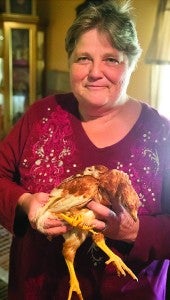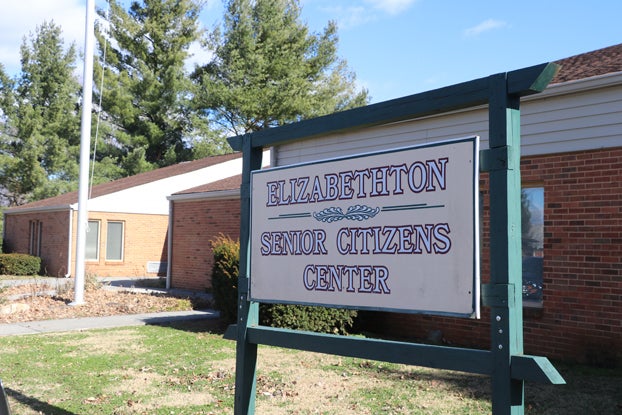Double drumsticks: 3-month-old chicken has four legs
Published 12:01 am Saturday, April 25, 2015
Does having four legs help a chicken cross the road any faster?
For Peggy, a 3-month-old Rhode Island Red chicken, having two extra legs does not slow her down.
“She functions just fine,” Deborah Hicks said. “She runs, she walks and she flies. She does everything a normal chicken would do.”
Hicks rescued Peggy and brought her to live at her small farm in Unicoi County with the other chickens, ducks and rabbits. Peggy has her two normal functioning legs, and on one side of her body, she has two smaller legs extending from her side.
Finding a chicken with four legs is rare, Hicks said.
“It means that her egg was a double-yolk,” she said. “Usually when there is a double-yolk neither will make it, but she survived for some reason.”
Peggy started her life with another family and was born with a group of other chickens. Her previous owners noticed the young chick had an extra set of legs and contacted Hicks about what to do.
“She called me and said, ‘Debbie, I have something to show you,’ ” Hicks said. “There was nothing wrong with her except she has two extra legs.”
Peggy’s first owner wasn’t sure what to do with the new chicken. She contacted the company that supplied the eggs Peggy was hatched from and was told she could either keep the chicken, give it away or kill it,” Hicks said.
“She debated on what to do for a couple of weeks and then she called and told me to take her and her roommate Red home with me,” Hicks said. “I brought her home because I rescue animals, especially those with special needs.”
Not only did Peggy find a new home with Hicks, she also found a new name.
“I named her Peggy because I thought of peg leg,” she said.
Peggy isn’t the only unique animal to make her home at Hicks’ house. Sweetie, a Chihuahua born with water on the brain, is also part of Hicks’ animal crew.
“When animals are in danger of dying, or needing extra attention, I bring them here,” she said. “If they look like they have a fighting chance, I take care of them and help them along. If they don’t, then I make sure the time they have is peaceful and they do not suffer.”
For the time being, Peggy and Red have their own cage in Hicks’ living room. When the chickens get a little older they will be moved outside to their own chicken coop. Peggy won’t get to lounge away her days on the farm. When she gets older, she already has a job lined up: laying eggs for Hicks to sell.
“She is going to have her own place outside, her own house,” she said. “She’s a producing chicken so she will lay eggs like the rest of the chickens. She will rule her own roost though.”
While Peggy appears to not be bothered by her extra appendages, Hicks will be paying close attention to make sure they do not became a problem for the frisky fowl.
“I think she knows they are there but she doesn’t pay any attention to them,” Hicks said. “If they ever do start to bother her, we will check to see about having them amputated.”
Peggy will never have to worry about finding another home again, Hicks said.
“I would never get rid of Peggy,” Hicks said. “She has got a life here. She is happy and content where she is at. She is not going anywhere.”





